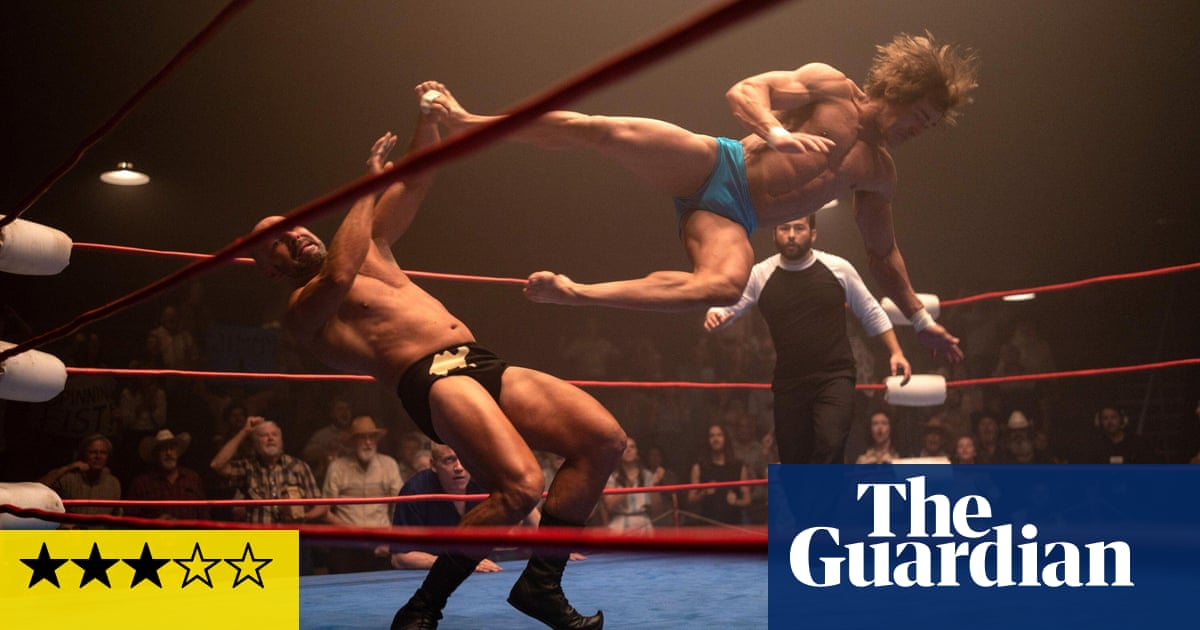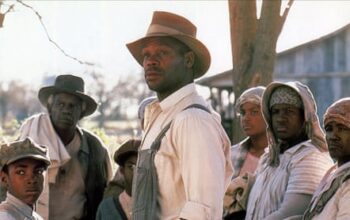
T
The film “The Iron Claw,” written and directed by Sean Durkin, is named after a famous wrestling move used by Fritz Von Erich, a character created by Jack Adkisson in the 1950s. This move involves a strong grip on the opponent’s face, with pressure on both temples, causing them to be immobilized on the ground. While this move may cause pain if done with force, it is often difficult to differentiate between the physical abilities of the wrestlers and their theatrical performance.
Which should be interesting territory for Durkin, whose two previous features, the eerie cult psycho-drama Martha Marcy May Marlene and 80s-set The Nest, are unnerving tangles of the real and imagined, strange comminglings of the supernatural, psychological and social. Like The Nest, The Iron Claw depicts the dissolution of a family under financial pressure – in this case, the real-life Von Erich lineage in American professional wrestling begun by the imposing Fritz (Holt McCallany) and wife Doris (an underused Maura Tierney) and continued by their sons. As with Durkin’s other characters, the Von Erichs are afflicted with paranoia (or a reaction to it): that the so-called family “curse” – a sports legend of hardship, injury, malaise and death in certain segments of the US – will come for them.
Durkin’s other works are known for their complex and non-linear structure, with shifts in time and perspective. However, The Iron Claw is an exception, as it follows a more straightforward narrative. Despite the strong performances from the cast, the story can be frustratingly unclear. The film begins and ends with reflections on the curse by Kevin Von Erich, Fritz’s second-oldest son and the only surviving sibling out of five brothers. He serves as our guide through this A24-produced tale of sports success and tragedy in 1980s Texas. The curse is exemplified by the death of Jack Jr, the oldest son, at the young age of six in a tragic accident.
Efron, with his newly pronounced jawline and bulging muscles, appears to be ill at ease in his own body. This seems fitting for his character, Kevin, who is Fritz’s main student in wrestling and therefore bears the brunt of his mentor’s ambitions and insecurities. However, Kevin is the least naturally suited of the brothers for the sport’s emphasis on showmanship and bravado. To help those unfamiliar with wrestling, Kevin explains the championship system – where a belt is essentially an award for performance – on his first date with Pam (Lily James). Pam is quickly taken through the stages of spectator, suitor, girlfriend, and strained wife.
The Iron Claw initially embraces the exaggerated theatrics and basic pleasures of pre-WWE professional wrestling, with a vivid sense of the setting – the Sportatorium mini-arena in Dallas, where Fritz Von Erich held his own tournament circuit. The arena is both a grungy local hangout and a symbol of triumph for the few thousand devoted fans. Durkin’s clever camera work and skillful sound design capture the intense sensations of professional wrestling – enough to make viewers flinch at the extreme physicality and pain, but not so much as to drive away the squeamish. The film also has a slick energy and genuine charm that showcases the success of the Von Erich brothers – Kevin, David (played compellingly by Harris Dickinson), Kerry (Jeremy Allen White), and Mike (Stanley Simons) – and their status as a respected wrestling family.
However, as the story continues, the tone shifts and the movie becomes a somber series of tragic events that are emotionally impactful but not given enough time to fully resonate in its lengthy two-hour and 12-minute runtime. In order to streamline the narrative, the son’s devastating fate is omitted from this retelling, which is hard to believe considering the immense suffering endured by this family. Durkin portrays the infamous curse as both a superstitious belief, causing Kevin to leave his home out of fear of spreading misfortune to his wife and child, and a harsh reality – what other explanation is there for all their hardships? Most intriguingly, the curse serves as a guise for mental illness within a predominantly male household.
However, a significant portion of the story remains distant; aside from Kevin, we have limited interactions with each brother and gain limited insight beyond their role within the family. This is also true for Fritz, who expresses pride in his sons but ultimately displays a tough, severe, and unyielding demeanor. Furthermore, the portrayal of professional wrestling in the later scenes becomes challenging to decipher as a legitimate sport – the distinction between genuine agony and staged theatrics becoming more perplexing than thought-provoking.
However, the Von Erichs experienced a great deal of tragedy, and Durkin effectively portrays this. The latter half of the film has a noticeable sense of emptiness and muted tone as Kevin becomes more isolated, and Efron portrays a man without direction due to his lack of family. The closing scene is likely to bring any empathetic person to tears, but given the tragic nature of the story, one would hope for a more fulfilling conclusion.
-
The movie “Iron Claw” will debut in US theaters on December 22nd and in the UK on February 9th, 2024.
Source: theguardian.com


